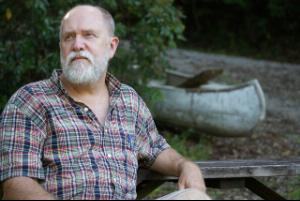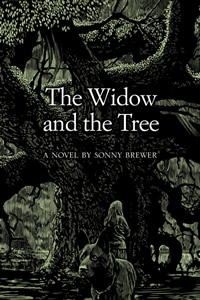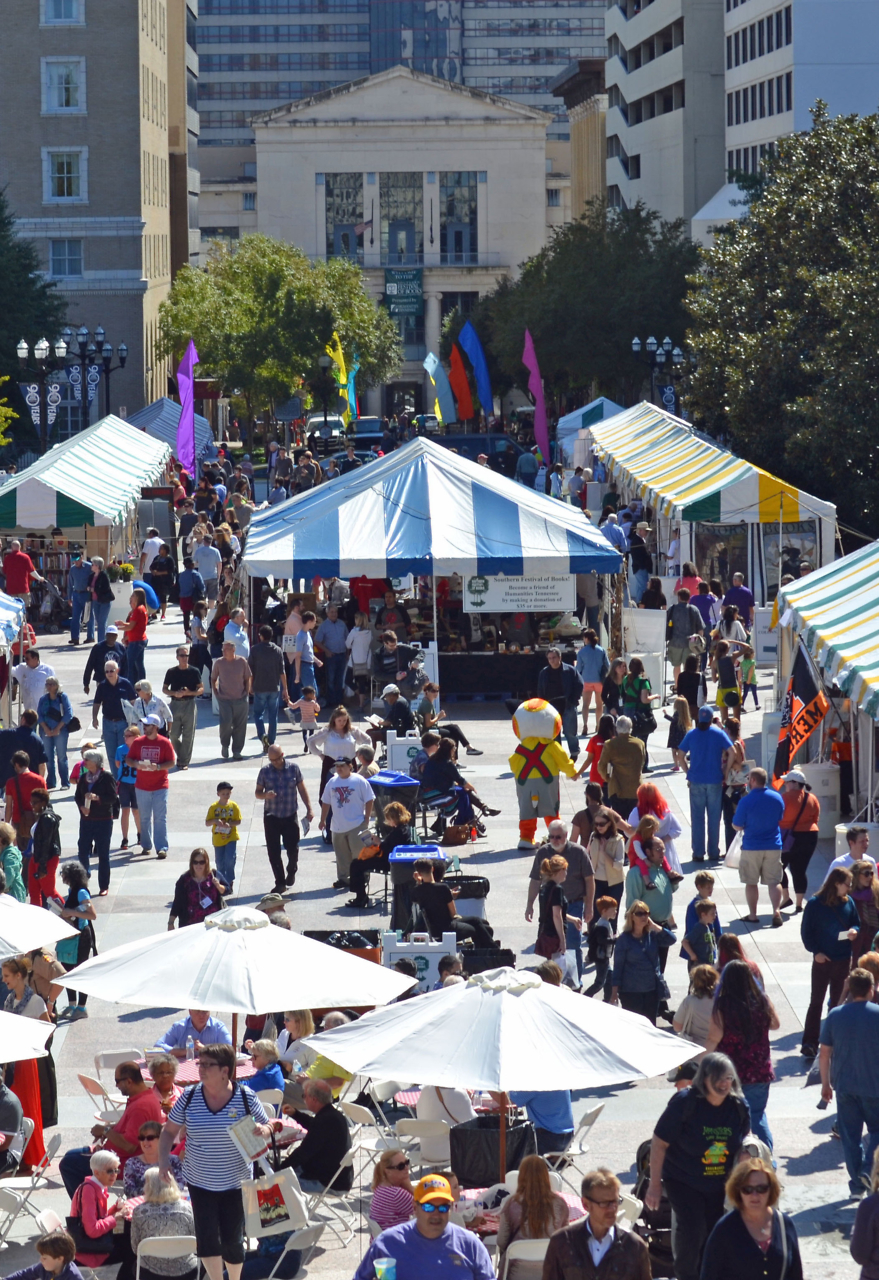Writers’ Work
Sonny Brewer discusses the Southern work ethic, the future of the book, and editing a new collection of essays by writers about their day jobs
If anyone ever had a finger on the pulse of Southern literature, that person is Sonny Brewer. The Alabama native is the author of four acclaimed novels and editor of the series Stories from the Blue Moon Café: Anthologies of Southern Writers. But perhaps his closest connections to the living literature of the South have come from his years as owner of the Over the Transom Bookstore in Fairhope, Alabama, and as chair of the nonprofit Fairhope Center for the Writing Arts. All of this connectivity to working Southern writers has led Brewer to a new kind of anthology: one about Southern writers at work. As in working at actual, sweaty jobs. Chapter 16 recently spoke with Brewer about the new book, The Railroad as Art: Southern Writers and Day Jobs, to be published in October by M.P. Publishing.
Chapter 16: It’s kind of interesting that we’re talking of the South and of the mostly menial jobs taken by the writers in your collection, and yet this book was first introduced in a blog, it has been updated on your Facebook page, and it will be published simultaneously in paper and electronically. In what ways are social media changing what it means to be a writer in the South?
 Brewer: I don’t think it’s changing what it means to be a writer. People still sit down with a pencil and a piece of paper, or a typewriter, or a laptop, and write their stories. But what is different is access to the readers. That includes those e-books we talk about. I was down at the beach last week, and a lady was sitting out there on the sand with an e-reader. Maybe it was a Kindle. I talked to her and I asked her if she liked it. She said she loved it. When she goes to the beach, she doesn’t have to try and figure out which of her books to pack. She takes them all. So it’s the access to readers that’s changing.
Brewer: I don’t think it’s changing what it means to be a writer. People still sit down with a pencil and a piece of paper, or a typewriter, or a laptop, and write their stories. But what is different is access to the readers. That includes those e-books we talk about. I was down at the beach last week, and a lady was sitting out there on the sand with an e-reader. Maybe it was a Kindle. I talked to her and I asked her if she liked it. She said she loved it. When she goes to the beach, she doesn’t have to try and figure out which of her books to pack. She takes them all. So it’s the access to readers that’s changing.
I set up a Facebook page and pretty quickly decided it wasn’t for me. Somebody scolded me for not doing enough daily posts. Was I gonna play the game or not? I didn’t like being scolded about that. And then I heard from somebody that I didn’t necessarily want to hear from. So if you don’t befriend them, they get mad at you, and if you befriend them, you’ve got to put up with them.
Chapter 16: You’re a former bookstore owner. Where do you think all this leaves bookstores?
Brewer: That woman who was on the beach—she doesn’t need to go to the Page and Palette Bookstore in Fairhope. She doesn’t need to get up out of her beach chair to go and get a book. If somebody walks by and says, “Have you read John Grisham’s new collection of stories, Ford County?” and she says, “No, but I think I’ll get that,” well, before that person is out of sight, she’s got it and she’s reading it, and she hasn’t gone to a bookstore. How can that not have a negative impact on the brick-and-mortar stores?
Now I don’t think that e-books will in any wise spell the end of books. People like to hold books. There’ll always be a market for hardbacks. You can’t stand in line and get your Kindle signed. When Pat Conroy comes out with a new book, he’s got a host of fans, and they want their Pat Conroy book signed. They want that first edition for their shelves. I think that market will always be there. It might become more of a niche market than a primary market for books. I looked at Amazon the other day, and it said their number one product is their Kindle.
Chapter 16: I’ve got a lot of friends telling me I need to buy one, but I’ve resisted so far.
Brewer: Well, people resist things. I know C. Terry Cline, Jr., the novelist who lives here in Fairhope; he just did not want to get a computer. He said his Smith Corona was fine. But now he’s got one, and now he’s retyping all his out-of-print books. He’s retyping them into a format so that he can offer them for sale as e-book downloads. So sooner or later, it’s sort of like the white man going west. You know, you couldn’t have said, “Y’all stop in Kansas.” Ain’t nobody’s gonna stop. They’re gonna go across the Rocky Mountains and keep going until the Pacific Ocean stops them.
Chapter 16: Let’s talk about day jobs. There seems to be a particular pride that Southern writers take in whatever sort of labor they’ve done that is not writing. You don’t hear writers from other regions talk about jobs in the way Southerners seem to, and I wonder why that is.
Brewer: You know, the work ethic is strong in the South. At Rick Bragg’s readings and signings, I’ve heard him ask this question a dozen times. He says, “By a show of hands, how many people in this room are one generation, or two generations, separated from somebody who worked with their hands?” Everybody in the room raises their hand. Down South, the work ethic is powerful. I think it’s true all over the place. You introduce yourself or somebody introduces you at a party, and whoever introduces you walks away and leaves you standing there talking to me. What’s my next question after I know your name?
Chapter 16: “What do you do?”
 Brewer: Absolutely! “What do you do” defines you. So writers, because they’re a melancholy lot, because they’re hard to pin down, because they’re creative and have short attention spans and low thresholds of boredom, are probably quick to quit a job. So you ask somebody at the party, “What do you do?” and they say, “Well, right now I’m doing carpenter work, but I’m also hoping to sell my novel.” Or “I wait tables,” or “I sing in a band,” or “I sell real estate,” or “I build houses.”
Brewer: Absolutely! “What do you do” defines you. So writers, because they’re a melancholy lot, because they’re hard to pin down, because they’re creative and have short attention spans and low thresholds of boredom, are probably quick to quit a job. So you ask somebody at the party, “What do you do?” and they say, “Well, right now I’m doing carpenter work, but I’m also hoping to sell my novel.” Or “I wait tables,” or “I sing in a band,” or “I sell real estate,” or “I build houses.”
Chapter 16: Do you think perhaps there’s just a little bit of guilt when writers do sell the novel and are suddenly getting paid for sitting around and writing? Is there a feeling, because of that Southern work ethic, that makes writers more respectful of the work they did with their hands?
Brewer: I don’t think there’s any guilt. I think it’s a great joy. It’s like, “Pinch me. How did this happen? How is that I can be paid to sit at home in my pajamas all day instead of clocking in down at the factory?” William Gay says he’s “clocking in at the culture factory.” That’s far different than punching your time clock at a coal mine, for heaven’s sake, or hauling pulpwood. It’s been interesting collecting these stories from people.
Chapter 16: I understand your first idea was to write a memoir on the subject.
Brewer: I was fifty pages into my memoir, which I called, Forty Hats: the Day Jobs in a Writer’s Life. The whole idea for this anthology was a—I’ll use the word of an electrician friend of mine, who does work with his hands. He loves to say “misconstrue-tion.” This book was a misconstrue-tion, because I was describing my own memoir to John Evans, [owner of Lemuria Books in Jackson, Mississippi]. He misunderstood and thought I was talking about collecting essays from Southern writers, which was a far better idea.
I was a pants folder and a used-car salesman and a carpenter and a folk singer. So what? So was Brad Watson. I asked William Gay if he would write about hanging sheet rock in the hills of East Tennessee, and he said no, he’d rather write about working at the pinball factory. That’s not what he wrote about at all. He’s writing about working at a furniture dipping place, where he dipped pieces of furniture, prepared them for their lacquer coat, and how the fumes made him drunk. So I found that it’s not uncommon at all to have many jobs. Even among the women. Michele Richmond, for heaven sakes, she had twenty jobs. You look at my bio sketch on my website, and it says, “Sonny Brewer’s done everything from flipping hamburgers to selling new Dodges.” So what?
So have a lot of writers, men and women, done a lot of different things. You think of an actor or actress in New York City or LA, waiting tables and just doing whatever they need to do. What they really want to do is be in a movie. What Sonny Brewer really wanted to do when he was selling real estate or folding pants at Tom and Huck Togs in Columbus, Mississippi, what I really wanted to do, was write a book. All the rest of it was a means to an end. A way to buy coffee, pay the rent, keep gas in my car. What’s interesting is those few writers who have never done anything but write. They went to school and they went for an MFA, and so they’ve never done anything but write, and I find that very interesting.
Chapter 16: I’m guessing those will mostly be the younger writers. Has that been the case?
Brewer: Well, you know, Pat Conroy told me when I asked him if he’d write something, “I’d be the boring one in the book, because all I ever did besides write was teach school, and that didn’t last very long.” He’s a war horse, a veteran of this writing business, and he got pretty quick to novels.
So what is unique—and it’s not unique to have held a variety of jobs, you know; lots of people have hung sheetrock and lots of people have worked, maybe not at the pinball factory, but at a factory—is that writers can bring to the table their ability to talk about it. It’s the stories that they can tell and the manner of the telling: the music, the lyricism, the reflection, the insight into these jobs that a lot of people have had, but maybe they didn’t quite think of it the same way, the way that Tom Franklin thinks of working at the grit factory or wearing a hazmat suit. Maybe they just do it, and sleepwalk through the day, or try to stay awake enough so they don’t get hurt on the job, but the writerly perception of working for a living, that’s one thing it’s just great to read. Janis Owens, over there in New Orleans, spent years as a carpenter. Well, I was a carpenter, too. But Janis Owens brings a certain insightful look at working with wood, and it makes it unique and wonderful.
Chapter 16: Would you say as these essays have come in that most of the writers bear fond feeling for the jobs they describe?
Brewer: Oh, yeah. And it’s a fondness for the variety, too. When I talked to Brad Watson and told him how the idea for the book came about with my memoir, he said, “You son of a bitch. That’s the book that I wanted to write. I’ve had as many jobs as you have.” And he loves it. Talk about fond. You know, we all like to talk about ourselves. We love it.
Chapter 16: Working in a pants factory or as a singer is a lot more interesting than a guy who sits at a desk all day.
Brewer: Absolutely. We love to tell those stories, and everybody is delighted with the opportunity. Everybody I called, to a person, got it immediately, got excited about it, and thanked me. Daniel Wallace has revised his piece now four or five times. The title of Daniel’s piece is “My Shit Job.” It’s a literal title, because he worked for a time taking care of the dogs at the veterinary clinic, cleaning up after them. But God, he loves to tell that story, and it’s just good stuff. Everybody jumped at the idea: “Oh God, yes, let me tell you about this job I had.” William Gay, when I said write about hanging sheetrock, he was way ahead of me. He said, “No, no, no, I’m gonna write about something better.”
I was with John Evans, and I mentioned John Grisham, and he said, “Oh, I don’t hold out any hope for Grisham throwing in on it. That’s not a thing he typically does—write original essays for anthologies. I don’t think he’s gonna do that.” But I asked John if he would at least tell Grisham about it, and he said he would. I knew that Grisham was at Lemuria signing 1,500 copies of Ford County behind closed doors. Well, I called three or four times that day and asked, “Did you tell him, did you tell him?” They said, “We did, and you may or may not hear from him.”
When three weeks had passed, and I didn’t hear from John, I figured, well, he isn’t gonna throw in on the book with us, but then I got an email from him. He said he has been asked a thousand times how is it that he made the transition from lawyer guy, even politician, to writer. How did he write that first book and how did he make that transition to full-time novelist. He was excited to have the opportunity to answer the question for his readers who wanted to know. That’s been the way everybody’s looked at it.
READ Rick Bragg’s essay, “Real Work,” which will appear in The Railroad as Art.


